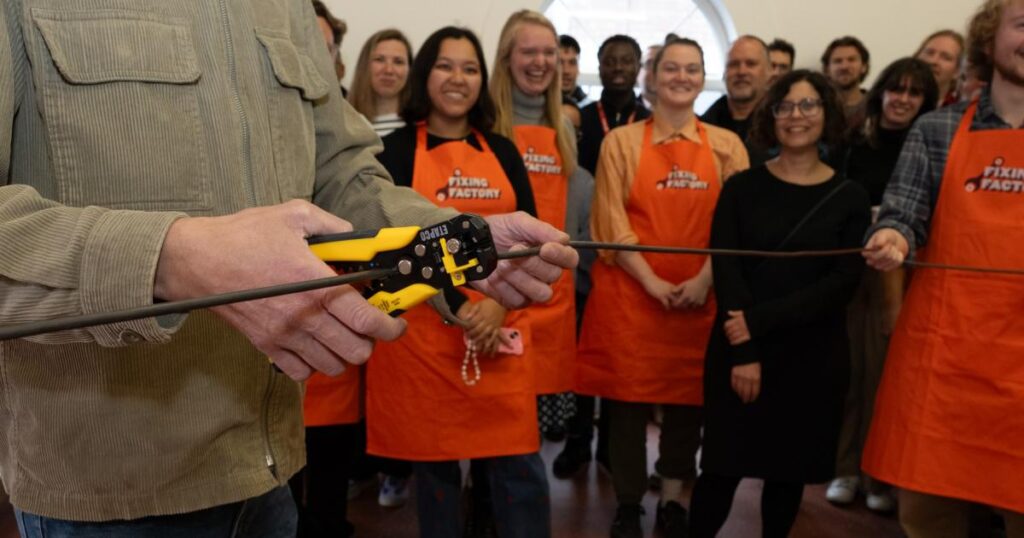It has been set up at the Florentia Village warehouse district at Vale Road in Harringay to encourage more sustainable living in today’s “throwaway” society, following others that have opened in Hackney and Kentish Town.

‘Fixing’ factories are helping local authorities reduce waste that ends up in landfill sites or being incinerated.
Training is given on how to mend things like electrical goods, textiles and furniture, with skills from rewiring a plug and patching up clothes, to soldering a circuit board.
“This ‘fixing factory’ gives people practical repair skills,” Haringey Council’s cabinet member for climate action Cllr Mike Hakata said at the opening. “It reduces waste for environment and social value in a circular economy.”

The factory’s workshop manager Isaac Winson-Bushby said: “This takes the ‘repair movement’ towards ending exorbitant waste, teaching people repair skills to keep their goods from ending up in landfill.”
A ‘fixing factory’ opened in Hackney in April at Dispensary Lane, off Mare Street, set up by the Restart recycling charity to tackle the waste in electrical goods. Another opened in Kentish Town before that.

Restart’s Shelini Kotecha said at the time: “We want a ‘fixing factory’ in every high street. Making repairs should be ‘the norm’ so people fix up their electricals rather than throw them away.”
The idea started with a pop-up “repair café” session in Willesden in 2023, when 100 people turned up to have items patched up as part of Brent Council’s ‘green neighbourhoods’ plan to reduce waste in Willesden and Kingsbury.
The ‘fixing’ factories get funding from the North London Waste Authority and Veolia waste contractors to work towards the GLA’s 50 per cent recycling target by 2030.

Fixing Factory volunteer Francesca Epifani said: “I’ve always been someone who mends things and am an advocate for reusing rather than just throwing stuff away. It’s not about the cost but about the principle.”
Electrical waste is said to contribute towards climate change, with the UK being the second highest producer of ‘E waste’ per head of its population.
There is a lack of affordable fixing services for household electrical appliances such as lamps and toasters. Fixing factories aim to change that by teaching people how to fix broken products for a second lease of life.
This saves money while helping reduce carbon emissions, shifting away from “indulgent throwaway consumerism” and back to the ‘repair’ economy of our grandparents and their ‘make do and mend’ mindset that coped with wartime shortages.





